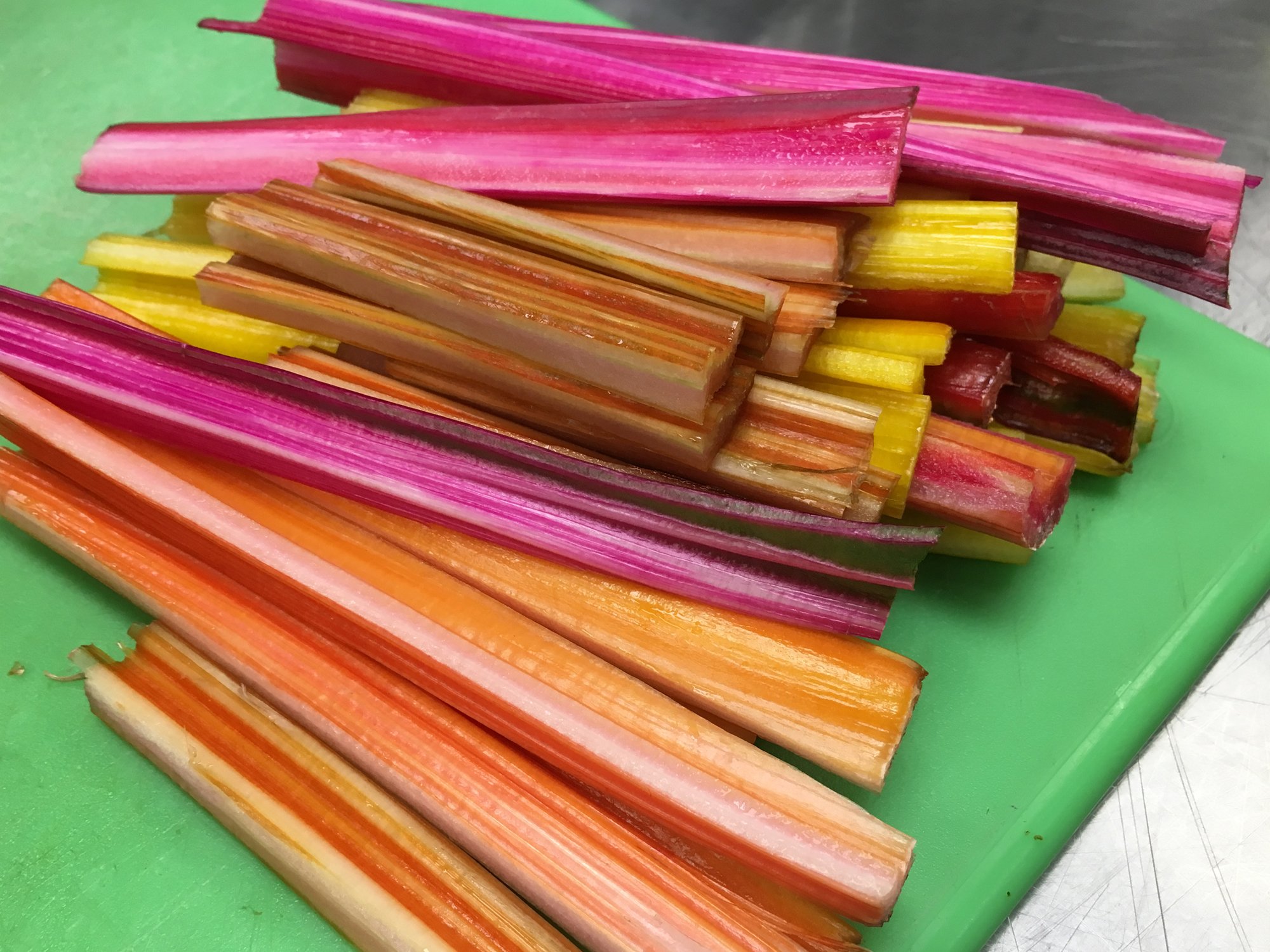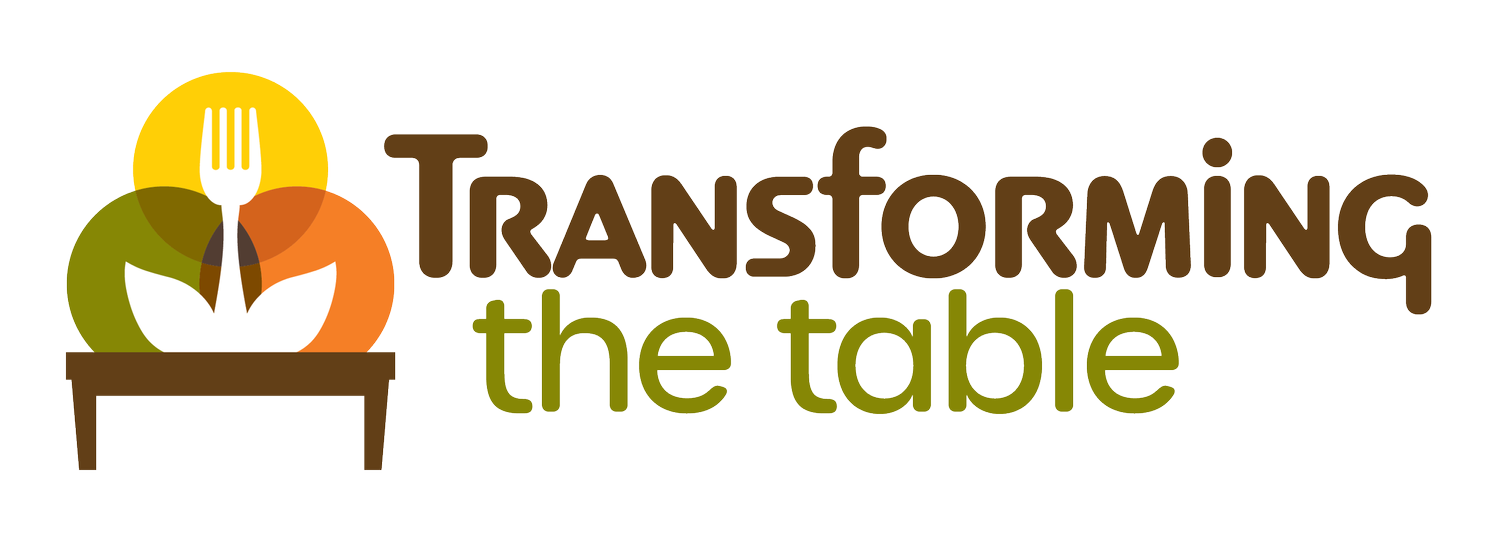
Nutrition Is Not a Math Problem
Ideas, Skills, & Techniques
In the early 1990s, my best friend and I crafted a business plan, got a bank loan, and opened a scratch cooking, seasonal, local food restaurant in Minneapolis. We worked with every local producer we knew, utilized a barter system, partnered with non-profit food, arts and youth organizations, and developed all the recipes, and service for a seasonal, rotating scratch menu.
While teaching public cooking classes, I learned that people were desperately searching for ideas, techniques, and skills to confidently, affordably, and deliciously integrate food and cooking into their lives.
After selling the restaurant in 2001, and becoming a mom, I grew more engaged in, and passionate about, issues of food justice and the influence of the food system on individuals, communities, schools, institutions, and especially human and environmental health.
Jenny prepping for a class with nutrition students at the U of M with kale from the student organic farm.
Cooking, Health, Community, Justice
As a mom of young kids, I had an ‘aha’ moment, and chose pursue a Master’s degree in Public Health Nutrition. I wanted to gain the credentials and connections to apply my skills and passions to change the food system
I was fortunate to receive a prestigious Archibald Bush Leadership Fellowship in 2009, to complete my MPH degree and to visit leaders in food justice and food education around the country.
I was surprised and at the lack of food systems content in Public Health Nutrition classes, and the general approach to nutrition as a math problem which lacked nuance.
I was seeking shared understanding, cultural humility, and engagement with actual food and the people, places and stories it came from. I also took the opportunity to build upon relationships I had from 20 years of work in the community, and to insert myself where food was - at the intersection of environment, health, and justice. And, I began to build an accessible, fun, and informative way to share skills, resources, and knowledge with people while fighting for an equitable food system.
Teaching at the Intersection
In the emerging food justice movement of the early 2000s, people, organizations, activists, and educators were also looking for more, better content about how to make these connections with their professional communities, teams, and audiences. These included individuals and families, non-profit and for-profit food, agriculture, education and justice based organizations, health and wellness programs and professions.
My unique combination of food industry experience and public health training, with years of on-the-ground community-based work, gave me perspective and skills to help organizations and activists strengthen their content and delivery around food and health, food systems, culinary nutrition, and food justice.
I will always teach at the intersection of the three spheres of culinary/food skills, environmental sustainability, and human/community health.
Working with students to prepare greens at Roosevelt Culinary Arts.




